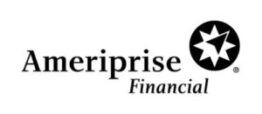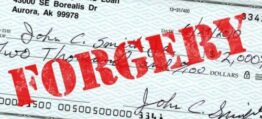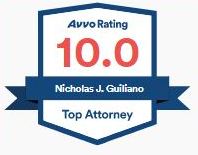

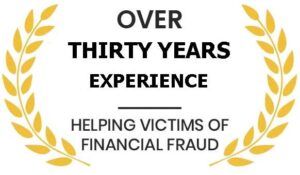
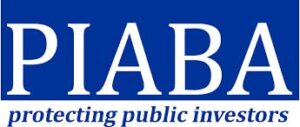

INVESTMENT FRAUD LAWYERS
WE RECOVER INVESTMENT LOSSES
Because Experience Matters
Let Us Fight for You
Securities broker-dealers also have a duty under the federal securities laws and self-regulatory rules to protect their customer accounts from fraud, and to adequately supervise the conduct and activities of their associated persons or stockbrokers, conducting business with the investing public, and engaged in the sale of securities or other investment related activities.
Investment losses can be devastating and life changing. Often investors do not understand the cause of their investment losses, or whether such losses are actionable. Many investors simply blame themselves. Many investors are also unaware that they are required to arbitrate their claims, and may be able to recover their investment losses by filing an action before the Financial Industry Regulatory Authority or FINRA, which serves as a forum for the adjudication of these claims.
Wronged investors also have a duty to act, or else their claims may be barred by operation of law and the passage of time from the occurrence or events giving rise to their claims, and as may be applicable, the discovery of these claims upon the exercise of reasonable diligence.
If you have suffered investment losses, you should consult with a securities or investment fraud lawyer to evaluate your claims and learn your rights and obligations.
Securities Arbitration Claims
Securities arbitration claims often involve complex legal and regulatory issues. Securities broker-dealers often have almost unlimited resources, and highly experienced securities arbitration lawyers or counsel to vigorously defend these claims. The prosecution and defense of securities related investor arbitration claims can be complex. This area of the law generally requires knowledge and experience dealing with the relevant legal issues which often involve the application of the federal securities laws, regulations, self-regulatory rules, individual state “blue-sky” laws, the common law, and the navigation of the FINRA Code of Arbitration Procedure.
Wall Street hires the best lawyers, and so should you.

For more than thirty years, we have fought for the rights of investors. We have accepted, and have successfully litigated complex securities arbitration and other claims for both small and large investors, including individuals, early retirees, trusts, pension plans, and large institutions, literally from all over the world. Our experience goes beyond the law. We understand complex financial products, and securities industry rules, regulations and procedures. It has formed the basis of our practice and expertise for more than thirty years. This is all we do, and it is all we have ever done. Clients hire us for our knowledge, experience and reputation. However, our clients are more than just our clients, when we take on their representation, we take on their cause. We obtain results because we work hard and zealously to get those results, and we are particularly proud of what our clients have said about the quality of our legal representation over the last several decades.
Investors Ought To Investigate
Investors, irrespective of their background or wealth, have the right to rely upon the knowledge, experience or trusted advice of their financial professional. Investors may often rely upon financial professionals that are relatives or family members. Investors may often rely upon fellow members of a religious or an affinity group. They may rely upon investment professionals recommended by their companies or employers. Many investors are solicited through free lunches or dinners, and are given a one-sided, or often fraudulent presentation as to a particular, often high commissioned, investment. All investors are entitled to the truth. However, all investors also have a duty to investigate before they invest.
As a general rule, investors should not invest in anything that they do not understand. If something is too good to be true, it probably is. Investigate your financial professional. Is your financial professional a registered stockbroker, or is that person an investment advisor, or both? Have you limited your right to sue in court, before FINRA, or somewhere else? Does FINRA BrokerCheck reveal a history of customer complaints, arbitration claims or regulatory proceedings against that person or their firm?

What are the stockbroker’s financial incentives? What are the brokerage firm’s financial incentives? Are these securities or financial products being recommended or sold to generate or maximize commissions and fees, and further their own financial interest, generally at the expense of the investor? There is no such thing as a free lunch, or a free dinner, unless you are a stockbroker holding a seminar to recruit investors, sponsored, and paid, by the issuers or promoters of the securities or investment product being recommended.
Be wary of private or direct investments, promissory notes, or other schemes. Are the securities you are being sold approved by the brokerage firm. Are the securities you are being sold registered, or exempt from registration under state and federal law. Be vigilant, and if you think something may be wrong, do something about it. The failure to act often results in dire consequences.
If you have suffered financial losses, you should consult with a securities arbitration and investment fraud lawyer to determine your rights and obligations.
Hire The Best Lawyers
Investors are also well advised to investigate their prospective counsel. We are not suggesting that the legal services to be performed by us are greater than the quality of legal services to be performed by other lawyers. However, do not simply rely upon self-proclaimed expertise, advertising, or a law firm’s flashy website. Investigate them. Ask questions. Ask other professionals. Many of our cases come from other lawyers, accountants, and even other investment professionals.
 Ask prospective counsel if they or their firm have experience litigating FINRA securities arbitration claims, and if so, for how long? How many cases have they actually tried at a final hearing? What are their other practice areas, if any? Are they members of the Public Investors Advocacy Bar Association (“PIABA”). Irrespective of firm size, will your case be litigated or tried by an associate or by the person whose name is on the door.? Are they responsive to their clients? What do their former clients have to say about them?
Ask prospective counsel if they or their firm have experience litigating FINRA securities arbitration claims, and if so, for how long? How many cases have they actually tried at a final hearing? What are their other practice areas, if any? Are they members of the Public Investors Advocacy Bar Association (“PIABA”). Irrespective of firm size, will your case be litigated or tried by an associate or by the person whose name is on the door.? Are they responsive to their clients? What do their former clients have to say about them?
Be wary of unlicensed or non-attorney representatives soliciting securities arbitration claims. Be wary of guarantees by anyone promising to win, or that they will recover your investment losses or damages, including exemplary damages, interest, costs, lost profits, and attorney’s fees simply to earn your business. Every case is different, however, every case has risk. That person may simply be telling you what you want to hear. We only accept cases we believe have merit. However, we are not cheerleaders, we are litigators.
Although we have all for the most part come from large or larger law firms, we are a “boutique” law firm, nationally situated across the country, that only does one thing: We represent investors in securities arbitration claims against stockbrokers and their brokerages firm for misconduct, including securities fraud, negligence, breach of fiduciary duty, the recommendation of defective investment products, unsuitable investments, theft, selling away, and the failure to supervise.
We have the resources, knowledge and experience to take on largest multinational financial and investment firms and their associated persons to recover your investment losses. Our clients like us because we get results. Arbitrators generally like us, or at least listen to us, because of our civility, knowledge of the relevant legal issues, and the quality of our work product. Defense lawyers, if anything, respect us for our experience. However, stockbrokers and their investment firms generally do not like us because we hold them to account, financially, for the victims of their misconduct.
Contingent Fee Representation
We also put our money (and resources) where our mouth is. We offer our legal services on a contingent fee basis, meaning that we advance all costs and there are no legal fees or expenses (where permitted) unless we make a recovery for you. Your obligation is to cooperate with us in connection with the prosecution of your claims.
Best of all, if you have suffered investment losses, think that you may have been the victim of securities or investment fraud, or are seeking qualified counsel to represent you in a legal matter or securities arbitration claim, subject to any actual or potential conflicts of interest, we offer investors a free, no obligation, confidential consultation to investigate any claims that they may have. We do not accept all claims. However, the evaluation or investigation of your claim is simple and convenient.
Our office is always available, and we are always available, by appointment, for a virtual consultation to discuss any securities related claim that you may have with a qualified securities arbitration lawyer, free of charge and without obligation.
Time is always of the essence. Many aggrieved investors fail to act before it is not too late. Brokerage firms or securities broker-dealers close, file for bankruptcy protection, or are expelled by regulators, often for the same or similar wrongful conduct perpetrated on all or most of their other customers, including you. The registration and identity of securities broker-dealers change by merger and acquisition within the securities industry. Stockbrokers often change firms, which may have consequences for a variety of reasons, particularly when an investor continues to rely upon tainted investment advice, when deciding to buy, sell or hold a particular security.
 Many aggrieved investors procrastinate. They often find it difficult to confront the truth. Psychologists call it confirmation bias. As Mark Twain is believed to have once said, “it is easier to fool people than to convince them that they have been fooled.” Many investors blame themselves, or fail to take action as the result of embarrassment. Many investors do not know that they are not alone, or that the law provides for the recovery of their investment losses due to misconduct through the FINRA securities arbitration process.
Many aggrieved investors procrastinate. They often find it difficult to confront the truth. Psychologists call it confirmation bias. As Mark Twain is believed to have once said, “it is easier to fool people than to convince them that they have been fooled.” Many investors blame themselves, or fail to take action as the result of embarrassment. Many investors do not know that they are not alone, or that the law provides for the recovery of their investment losses due to misconduct through the FINRA securities arbitration process.
All claims are time sensitive. FINRA securities arbitration claims are only eligible for arbitration before FINRA within six years of the date of events giving rise to their claims, and arguably the discovery of their claims upon the exercise of reasonable diligence.
Under State law, generally, all claims for common law fraud, breach of fiduciary duty, or other tort claims, must be brought within two (2) years of the date of discovery upon the exercise of reasonable diligence. Under the federal securities laws, all such claims must be brought within two (2) years from the date of discovery of any such claim, or five (5) years from the date of the occurrence of the events giving rise to the claim(s), whichever is shorter. Under State law, generally, all claims for common law fraud, breach of fiduciary duty, or other tort claims, must be brought within two (2) years of the date of discovery upon the exercise of reasonable diligence.
Under the federal securities laws, all such claims must be brought within two (2) years from the date of discovery of any such claim, or five (5) years from the date of the occurrence of the events giving rise to the claim(s), whichever is shorter. Under State law, generally, all claims for common law fraud, breach of fiduciary duty, or other tort claims, must be brought within two (2) years of the date of discovery upon the exercise of reasonable diligence.
If an aggrieved investor fails to bring these claims by filing a formal legal action, in a court of competent jurisdiction, or before FINRA Dispute Resolution, within these proscribed times, these claims may be forever lost or time barred. Accordingly, time is always of the essence, and if you suspect that you have been the victim of securities or investment fraud, you should consult with a qualified securities arbitration and investment fraud lawyer to determine your rights and responsibilities.
If an aggrieved investor fails to bring these claims by filing a formal legal action, in a court of competent jurisdiction, or before FINRA Dispute Resolution, within these proscribed times, these claims may be forever lost or time barred. Accordingly, time is always of the essence, and if you suspect that you have been the victim of securities or investment fraud, you should consult with a qualified securities arbitration and investment fraud lawyer to determine your rights and responsibilities.
We offer a free, no-obligation, confidential consultation in connection with the evaluation of these claims (subject to certain limitations), and we undertake the representation of investors on a contingent fee basis, meaning that we do not get paid unless we make a successful recovery for you. Contact us today for more information or to speak with one of our lawyers.
The Evaluation Process →
What Documents Do I Need →
Document Retention →
Useful Investor Links →
How Investors Can Protect Themselves →
Investment Loss Recovery →
Securities Litigation →
Class Actions and Arbitration →
Securities Mediation →
Representative Cases →
Client Testimonials →

– Experience –
Trial and Litigation skills, backed by subject matter knowledge, litigation experience before FINRA, the discovery process, and the Code of Arbitration Procedure.
Within the last 30 years, we have successfully represented more than 1,000 clients, including institutions, pension funds, trusts, and individuals from all walks of life, from celebrities and lottery winners to police officers, and early retirees, nationally, from almost every state in America, and internationally, from South America to the Far East.
– Aggressive Representation –
Litigation is seldom a level playing field. Results are always the product of aggressive advocacy, a dedication to the issues, hard work, impeccable preparedness, creativity, and zeal. We work on very large cases and very small cases. What is important to us is your case.
– Reputation –
Honesty and integrity with respect to our clients, intellectual honesty, integrity and respect for the process, opposing counsel and the tribunal. Our practice is limited to the litigation of securities related matters. That is all we do, and that it all we have ever done. We deliver the highest work product and quality legal services to our clients. Our reputation is important. We get results. That is who we are and that is what we are known for.
-
FINRA Securities Arbitration →
Defective Financial Products →
Unsuitable Recommendations →
Stockbroker Misconduct →
Breach of Fiduciary Duty →
Stockbroker Negligence →
Elder Financial Abuse →
Churning or Excessive Activity →
Overconcentration →
Margin Fraud →
Stockbroker Theft →
Sale of Unregistered Securities →
Ponzi Schemes →
Alternative Investments →




